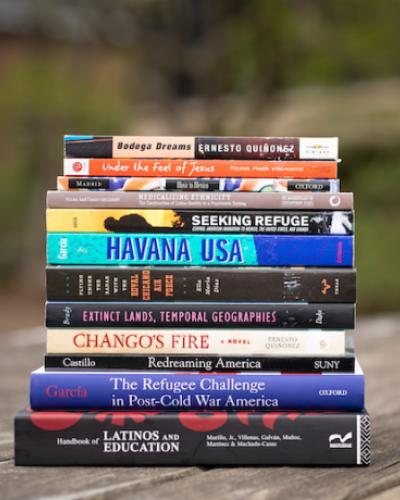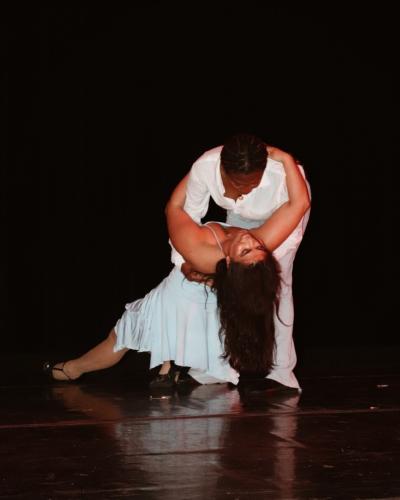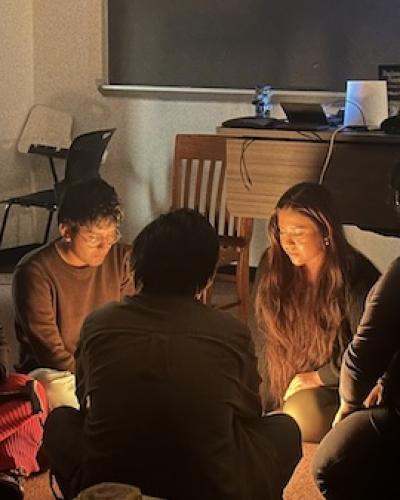The Society for the Humanities in the College of Arts and Sciences has added to its Humanities Grants offerings in 2021, awarding the new Humanities Impact Grants.
Two public-facing projects by Cornell faculty have received $10,000 each to “engage in broader public conversations with social impact in mind,” funded by the Office of the Vice President for Research and Innovation.
“These new projects are meant to be ‘unconventional’ and have a social impact outcome,” said Emmanuel Giannelis, vice president for research and innovation. “They are supposed to catalyze new collaborations, be outward looking with a reach outside the academy, and address a current issue.”
The newly funded projects are:
- “Cornell ReSounds: The Design and Performance CoLab for New Acoustic Instruments” (Xak Bjerken, professor of music, and Elizabeth Ogonek, incoming faculty member in music), a Cornell-based hub for acoustic instrument building and collaboration; and
- “Critical Moves: Performance in Theory & Movement” (Christine Balance, associate professor of performing and media arts and Asian American Studies, and Karen Jaime, assistant professor of performing and media arts and Latina/o Studies), an incubator for a university-wide conversation on issues of racism, inequity, and diversity, with art-making as an engine for fostering socio-political change.
Both 2021 Humanities Impact Grants projects are poised to engage scholarly and creative communities within and outside Cornell.
In “Cornell ReSounds,” Cornell technologists, engineers, and instrument builders will work with performers and composers from the university and beyond to create a body of site-specific work for new instruments. The project will reach both live and online audiences.
“This archive of instruments and recorded works will bring added visibility to Cornell as a hub for innovative collaborations among technologists, engineers, musicians, dancers, poets and other artists,” Bjerken said.
“Critical Moves,” an initiative between the Asian American Studies Program, the Latina/o Studies Program, and Performing and Media Arts, is a joint research project between Cornell faculty, students and a selection of leading artists and scholars from beyond Ithaca from underrepresented and marginalized communities. Critical conversations and hands-on workshops will focus on issues related to racial, economic, and gender inequalities.
“This project puts the humanities to work at a moment of crisis, looking for urgent, immediate and long-term impacts that address marginality, isolation and equality,” Balance said. “The long-term impact is to serve as a platform for conversations between performance theory and practice at the crossroads of art and social change.”
“Specifically, through ‘Critical Moves,’ we are encouraging students to re-imagine and actively work to address the social and political issues they are reading, discussing and learning about in their respective classes,” Jaime said.
Giannelis said the two pilot projects will inform and shape the Humanities Impact Grants program in coming years. “The expectation is that as more scholars learn about it, we will be able to attract a diverse set of projects that harness the great scholarship that is going on at Cornell,” he said.
Cornell faculty members holding regular appointments in humanities departments are eligible to apply. Applicants are encouraged to “extend the frame of traditional research and creatively bring together faculty (and students) to showcase how the humanities impact people, communities, and/or the globe,” according to the Society for the Humanities.
Individual and collaborative projects are welcomed, especially those that show creativity, new pathways, and unexplored ideas. The next round of applications for these grants will be considered in spring 2022.
Humanities projects that reach into the world are consistent with Cornell’s land grant mission, Giannelis said. “We are fortunate to be part of Cornell and be surrounded by exceptional and innovative minds.”




